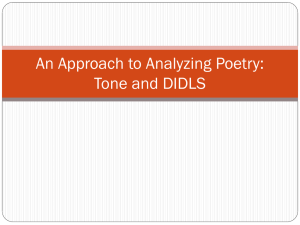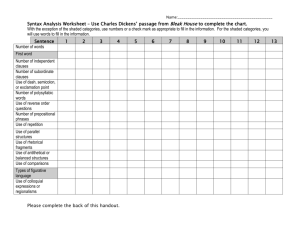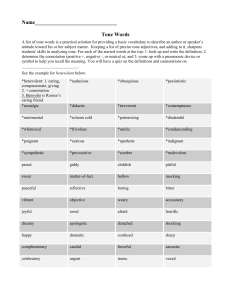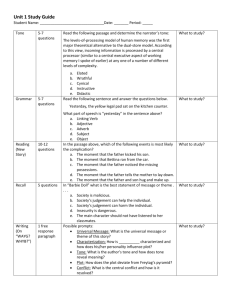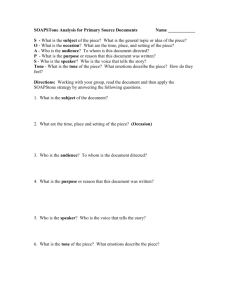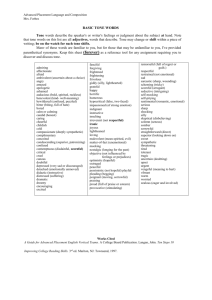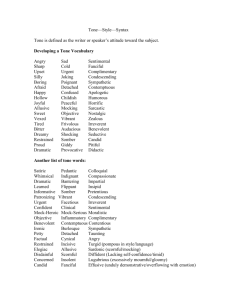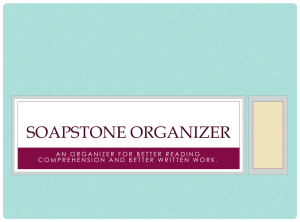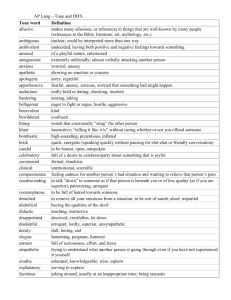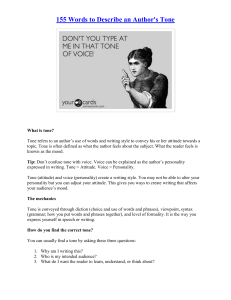Tone and Style - APENGLANGCOMP
advertisement
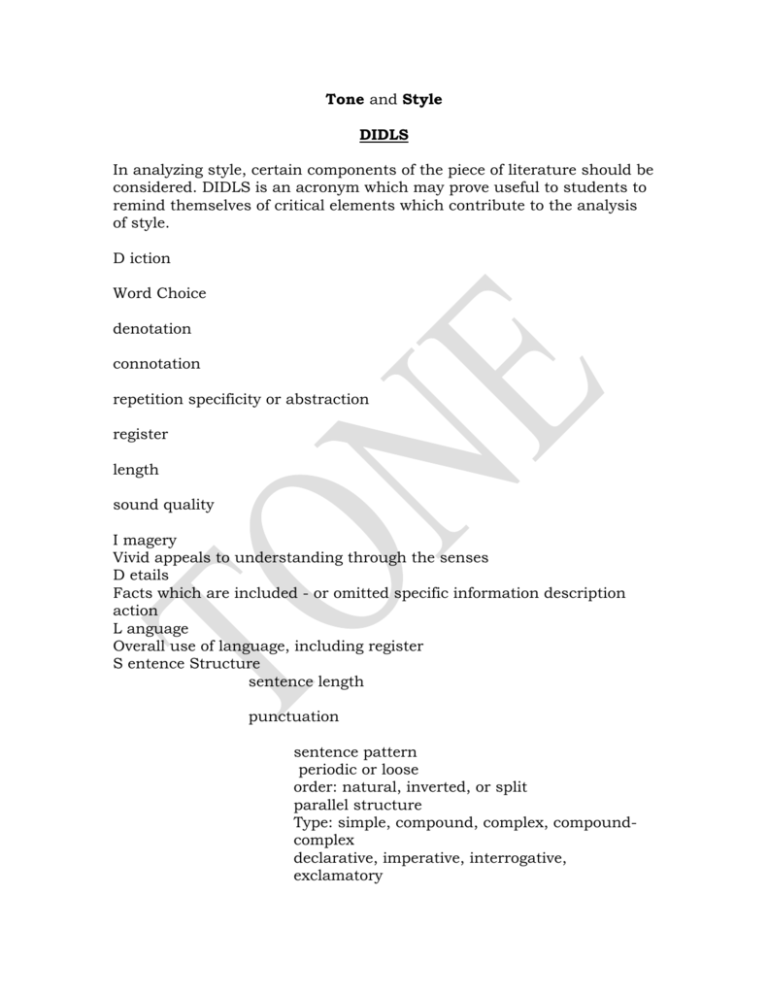
Tone and Style DIDLS In analyzing style, certain components of the piece of literature should be considered. DIDLS is an acronym which may prove useful to students to remind themselves of critical elements which contribute to the analysis of style. D iction Word Choice denotation connotation repetition specificity or abstraction register length sound quality I magery Vivid appeals to understanding through the senses D etails Facts which are included - or omitted specific information description action L anguage Overall use of language, including register S entence Structure sentence length punctuation sentence pattern periodic or loose order: natural, inverted, or split parallel structure Type: simple, compound, complex, compoundcomplex declarative, imperative, interrogative, exclamatory Tone 1. What atmosphere (effect upon the reader) is created by the selection? 2. What tone (author’s attitude toward the subject) does the selection have? In order to determine atmosphere and tone, consider the following: 1. What is the diction of the work (the relationship of word choice to author purpose and the effectiveness of the piece)? 2. What imagery does the author use, and to what senses do these appeal? 3. What figures of speech (e.g., simile, metaphor, personification, allusion) are used? 4. What sound devices (e.g., alliteration, assonance, consonance, repetition) does the author use, and what effect do these have on meaning? 5. What type of language (formal, colloquial, idiomatic, informal, slang, etc.) does 0the selection employ? To what effect? 6. What type of syntax is used? a. Are short or long sentences used? b. Is there a variety of sentence structure (simple, compound, complex, compound-complex)? If so, what effect does this have on meaning? c. Does the author use specialized sentence variety, such as inverted word order, parallel structure, balance, etc.? 7. What significant words or phrases seem to stand out, and how do these abstract admiring afraid aggressively judgmental allegorical allusive ambiguous analytical anecdotal angry apologetic audacious benevolent bitter bitter boring candid capricious chastising clinical cold colloquial complimentary condescending confident confused contemptuous conversational critical cynical cynical decisive detached detailed didactic direct doctrinaire dramatic dreamy erudite exhortative expository fanciful farcical fervent formal complex frivolous giddy happy harsh horrific humorous hyperbolic impartial indignant indulgent informal informative ironic irreverent joking joyful laudatory libelous lighthearted mocking mocking serious moralistic nostalgic objective objective observant paradoxical peaceful pedantic pitiful poignant pretentious proud provocative reflective restrained reverent reverently sad sarcastic sardonic scathing scathingly scholarly seductive self-aware self-congratulatory sentimental servile sharp shocking silly somber sweet sweetly effusive sympathetic tired uncomplicated upset urgent urgent vexed vibrant vituperative wistfully zealous
